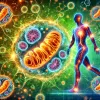Welcome back to our regular feature where we sift through thousands of new, health-related papers, and pick a few to summarize in a practical, simple, and not anxiety-inducing way.
Our main questions on each paper:
- In simple language, what does it say?
- Does it have good evidence?
- Should what it says matter to normal people?
- What simple thing, if anything, could a normal person do to take advantage of this finding?
Okay, away we go. And, as always, we rate each paper for practicality and level of interest, but we are mostly focused on finding ways to simplify findings. And more than anything else, we want to avoid over-optimization, so if a paper is telling you down to the minute how much sunlight to get at dawn, or that you should only drink coffee during eclipses, we are outta there.
This edition's articles and papers:
- Is Fish Oil Helpful or Harmful for the Heart? - The New York Times https://www.nytimes.com/2024/06/24/well/eat/omega-3-fish-oil-heart-health.html?smid=tw-share
- Skeletal muscle as a pro- and anti-inflammatory tissue: insights from children to adults and ultrasound findings | Journal of Ultrasound https://link.springer.com/article/10.1007/s40477-024-00917-5
- Bicycling over a Lifetime Is Associated with Less Symptomatic Knee Osteoarthritis: Data from the Osteoarthritis Initiative - PubMed https://pubmed.ncbi.nlm.nih.gov/38600648/
- Effects of resistance exercise and whey protein supplementation on cognitive function in older men: secondary analysis of a randomised, double-blind, placebo-controlled trial - ScienceDirect https://www.sciencedirect.com/science/article/pii/S0531556524001190
Now, here are our takes on the articles and papers:
Paper: Omega-3 and Heart Health
Practicality (3/5): 🏃♂️🏃♂️🏃♂️🏃♂️🏃♂️
Interest (3/5): 🏃♂️🏃♂️🏃♂️🏃♂️🏃♂️
Summary
Recent studies show mixed results about the benefits of omega-3 supplements for heart health. While there is some evidence they might reduce heart disease, many trials show no overall benefit. There's also a risk of developing an irregular heartbeat from these supplements.
What is the article's main claim?
- Omega-3 supplements, while increasingly popular, show limited and inconsistent benefits for heart health.
- These supplements might increase the risk of an irregular heart rhythm.
Are the methods and/or data it uses appropriate and convincing?
- Most studies, including large clinical trials, show no significant reduction in heart disease or cardiovascular events with omega-3 supplements.
- There is some risk associated with developing an irregular heartbeat, particularly at higher doses.
What do we know now that we didn't know before, if anything?
- The increased risk of developing atrial fibrillation (an irregular heartbeat) from omega-3 supplements is becoming clearer.
- The supposed heart health benefits from omega-3 supplements are less certain than once hoped.
What simple and practical thing could a normal person do knowing this?
- Instead of relying on supplements, aim to get omega-3s naturally by eating fatty fish like salmon or sardines a few times a week.
Paper: Muscle's Role in Inflammation
Practicality (5/5): 🏃♂️🏃♂️🏃♂️🏃♂️🏃♂️
Interest (4/5): 🏃♂️🏃♀️🏃🏽🏃♂️
Summary
Skeletal muscles, traditionally seen as movement generators, also play significant roles in immune response and hormone regulation. By studying proteins released by muscles during exercise, researchers highlight potential new methods for managing inflammation-related conditions.
What is the paper's main claim?
- Muscles release proteins during exercise that help regulate inflammation and hormone balance.
- Ultrasound technology can provide detailed insights into muscle structure and function, useful for diagnosing and treating diseases.
Are the methods and/or data it uses appropriate and convincing?
- The study uses existing literature and observations from molecular biology and ultrasound imaging, thus methodological robustness can vary.
- Effect sizes described are noteworthy, but data from new, controlled studies would strengthen these findings.
What do we know now that we didn't know before, if anything?
- Muscles have endocrine functions, significantly influencing inflammation and metabolism.
- Improvements in ultrasound technology provide deeper insights into muscle health and its systemic impacts.
What simple and practical thing could a normal person do knowing this?
- Regular resistance exercise not only strengthens muscles but also helps control inflammation and improves overall metabolic health, so do more of it.
Paper: Bicycling and Knee Osteoarthritis
Practicality (4/5): 🏃♂️🏃♂️🏃♂️🏃♂️
Interest (4/5): 🏃♂️🏃♂️🏃♂️🏃♂️
Summary
People who have bicycled at some point in their lives are less likely to experience knee pain and arthritis symptoms as they age.
What is the paper's main claim?
- Bicycling reduces the likelihood of having frequent knee pain and symptomatic knee osteoarthritis.
- The benefits increase with more extended periods of bicycling over one's lifetime.
Are the methods and/or data it uses appropriate and convincing?
- The study relies on a sizeable sample of over 2600 participants, which strengthens the reliability of its findings.
- However, being a retrospective, cross-sectional study, it cannot firmly establish cause and effect. Self-reported data on bicycling introduces potential bias.
What do we know now that we didn't know before, if anything?
- This study adds insight by showing a clear association between a history of bicycling and reduced knee pain and arthritis symptoms.
- It reinforces the cumulative benefit of maintaining bicycling over different life stages.
What simple and practical thing could a normal person do knowing this?
- Regularly incorporate bicycling into your routine, regardless of age, to potentially reduce the risk of future knee pain and arthritis.
Paper: Effects of Exercise and Protein on Older Men's Cognition
Practicality (3/5): 🏃♂️🏃♂️🏃♂️🏃♂️🏃♂️
Interest (3/5): 🏃♂️🏃♂️🏃♂️🏃♂️
Summary
Whey protein improved some cognitive abilities in older men, while resistance exercise alone didn’t show similar benefits. The combination of the two didn’t have additional cognitive benefits but reduced body-wide inflammation.
What is the paper's main claim?
- Whey protein improved cognitive skills more than a carbohydrate supplement.
- Resistance exercise didn’t enhance cognitive abilities but did lower inflammation levels.
Are the methods and/or data it uses appropriate and convincing?
- The study involved 36 older men so the small sample size could impact findings.
What do we know now that we didn't know before, if anything?
- The specific effect of whey protein alone improving certain thinking skills in older men is new but needs larger studies to confirm.
What simple and practical thing could a normal person do knowing this?
- Considering incorporating whey protein in the diet as it may help with some aspects of brain health as one ages
- Exercise should still be continued for overall health.
Back next week with thoughtful and simplifying takes on papers getting attention. And if you see anything you want us to look at, let us know.





